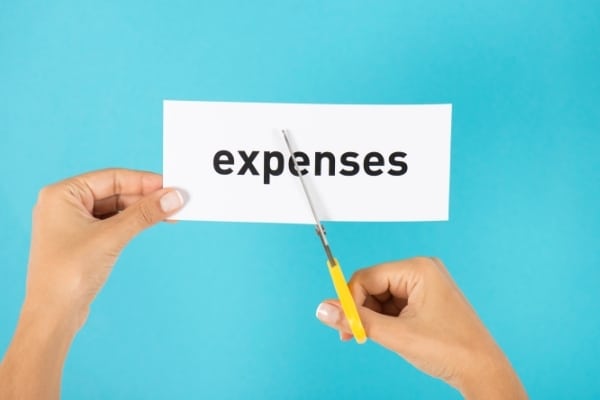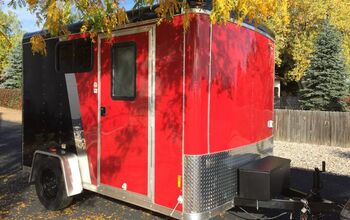How to Drastically Cut Expenses ( in 45 Easy Ways)

How to drastically cut expenses
Are you having a tough time paying your monthly bills?
Are you living from one paycheck to another?
Are you trying to pay off high-interest debt?
If the answer to any of these questions is yes, it’s time for you to drastically cut expenses.
But figuring out how to reduce expenses is not as easy as it sounds.
You only don’t need to figure out where you are overspending, but also change certain habits to avoid unreasonable expenses, which may not be very easy.
In this article, we shall be discussing the various strategies about how to drastically cut expenses to create a healthy gap between your costs and your paycheck so that you are on your way to financial freedom.
Plan a budget
If you are wondering – how can I reduce my monthly expenses, the first thing you need to do is plan a monthly budget.
After all, you can’t drastically cut costs if you don’t know where your money is going.
A budget will help you understand where you stand financially and the changes you need to make.
Here are some important steps to plan a budget –
1. List out your expenses
The first and the most critical step to planning a budget is listing out your expenses. Gather all your bills and receipts and go through your bank statements.
Look at all the expenses that you incurred in one month. This will help you figure out where you can make the drastic cuts.
2. Analyse the expenses
Once you have identified the expenses, it is time to analyze them and separate your wants from your needs.
Needs are the things that you will not be able to survive without and wants is everything else.
Before you tell me that you can’t survive without Netflix, just think about all your non-essential expenses and whether you actually need them.
Be brutally honest if you really want to know how to drastically cut expenses.
3. Cut out your wants
If you have honestly analyzed your expenses, it will not be difficult to identify your wants.
It is now time to take out the non-essential costs from your budget.
Frequent restaurant meals, shopping trips to the mall, and memberships to the gym where you never go can all be cut out.
4. Reduce your needs
While cutting out the wants can reduce your monthly expenses, you can also take steps to reduce the expenditure on your needs.
You can take some drastic to reduce the spending on housing, food, transportation, personal insurance, and pensions.
What should a bare necessities budget include?
Your budget should include only the necessities. No extra luxuries. Here’s what it should include –
1. Housing
The housing includes all the costs of keeping a roof over your head like rent/mortgage, home insurance, renter’s insurance, escrow payments, and property taxes.
2. Transportation
This includes the bare minimum you need to get to work and schools, like money for gas, car insurance, and maintenance costs.
3. Food
Food costs should include groceries that you need to feed yourself and your family. It does not include eating out or takeouts.
4. Utilities
This section includes electricity bills, water/sewage/trash pickup bills, oil bills, natural gas bills, and internet bills if you need internet for your job.
5. Medical Costs
Your medical costs include all the prescriptions you need, health insurance premiums, doctor appointment copays, and any other medical needs.
6. Childcare
Childcare is an equally important part of a bare necessities budget for full-time working parents.
7. Debt repayment
Debt repayment is necessary to avoid ballooning debt and collection agencies.
45 tips to drastically cut expenses
The next important question that may come to your mind is – How can I reduce my monthly expenses?
Let’s look at these 45 ways to reduce your monthly expenses and stop worrying about living paycheck to paycheck:
Cut down your housing expenses
According to experts, your housing costs should not exceed more than 30% of your monthly gross income. Your monthly mortgage costs include your mortgage payments, homeowner’s insurance, property taxes and maintenance.
If your housing costs are greater than 30%, you fall into the cost-burdened category. And if this figure exceeds 50% of your gross monthly income, then you are severely cost-burdened.
Don’t worry but focus on how to reduce your housing expenses. Here are some ways to save money on housing –
1. Lower your homeowner’s insurance
First of all, ensure that the information given on your current policy is accurate. You can shop around for a cheaper home insurance policy.
You can check with your auto insurance company, as combining your policies can get you a discount.
2. Appeal your property tax assessment
When you buy a house, the property tax increases on you. The tax assessor uses the market price that you paid as the new base for taxes.
You can appeal the assessed value of your home and file a protest. This may help lower your property tax assessment.
If you are nearing retirement age, you can fight the tax appraisal of the home that you will be staying in. Many districts have a ceiling on tax obligations once you reach a certain age.
3. Rent out a part of your home
You can rent out a room in your home as this could help free up some cash for other expenses.
If the idea of sharing your home with another person does not appeal to you, you can rent out a room or your garage for storage purposes.
4. Move to a cheaper place
If you find it difficult to pay rent for your current apartment, it would be wise to shift to a cheaper location.
If your lease isn’t up yet, consider getting out of your current lease.
The cost of breaking the lease may be worth it in the long run.
Cut down on transportation expenses
According to the American Automobile Association, owning and operating even a small-sized sedan car can cost you more than $8,500 a year.
Here are some easy ways to save money on transportation –
5. Use public transportation
Using public transportation saves you money on gas, parking, maintenance, and more.
Using public transportation is easy and convenient and costs a fraction of the cost of owning a vehicle.
6. Sell your second car
If you own a car that you don’t use often, you must get rid of it. It will save you money on insurance and oil change.
You can put the money you get from selling the car to better use.
7. Limit your financing
The more financing you get, the more interest you will have to pay.
And since a car is not an asset that increases in value over time, you should not pay more than its worth.
8. Carpool
If you get the opportunity to carpool with someone to and from work, it can significantly reduce the cost of gas and reduce the wear and tear of your car.
For example, if you commute 16 miles one way to your work, sharing the ride with another person can save you $600 a year.
9. Maintain your car
Keep your tires fully inflated, get regular oil checks, and do essential car maintenance regularly.
These steps will help your car run more efficiently and affordably. A well-maintained car also has a better resale value.
10. Walk or bike whenever you can
Walking or biking can take you where you need to go and save a lot in cash. After all, you will not have to pay for gas and maintaining your car.
Also, you can park your bike anywhere, and it does not cost you anything.
Cutting down on food expenses
Food is one of the most significant expenses for any household. Even the few wrong food choices can add up quickly and blow up your food budget.
Finding different ways to cut down on food expenses can make a significant difference to your overall spending.
11. Always make a grocery list
Never go to your grocery store without a shopping list. Pre-plan what you need for the week and shop accordingly. Avoid adding anything extra that you don’t need.
12. Make a weekly meal plan
When you plan all your meals for the week and shop according to your needs, you always have enough food in the house.
This way, you will avoid takeouts and not have to throw out unused perishable food items.
13. Buy in bulk
Buying non-perishable food items in bulk is an easy way to save money on food. Buying items like rice, pasta, and beans in bulk can help you save more money.
14. Buy generic brands
You don’t have to stick to a brand just because you have always used it.
There is no difference between branded food items and the other generic brands, other than the fact that generic brands cost substantially less.
15. Don’t shop when hungry
According to a study from the University of Minnesota’s Carlson School of Management, when you are hungry, it amps up your desire to acquire things.
You may end up buying more than you need. So, have a snack before you go shopping for groceries.
16. Take lunch to work
It’s convenient to grab your lunch at work from a café or a restaurant around the corner, but it also costs money.
If your daily lunch costs you $12 per day, you can easily spend over $3,000 on your lunches over the year. When you prepare your meal in advance and take your lunch from home, you and your bank balance will become healthier.
17. Reduce eating out or takeout
Eating out or takeout can save you a lot of time, but it can also be quite expensive.
You can cook at home and not spend too much time if you prep in advance. You can prepare meals over the weekend and freeze them for later.
Focus on simple recipes and use fresh produce in season in your area.
Cut down on energy bills
An average American household spends around $2,000 on energy every year.
Fortunately, due to the new and improved technology, there are ways to improve energy efficiency and reduce power bills.
18. Install LED light bulbs
LED bulbs are typically 25% to 80% more energy-efficient than incandescent bulbs. See the chart below to see energy consumption comparison between various light bulbs:
LED bulbs are expensive than traditional bulbs, but they last longer than the latter and will help you save significantly on electricity bills.
19. Unplug all unused electrical devices
Most electronic items draw a small amount of charge when they are plugged in, even when they are not used.
Now think of how many devices you have that are always plugged in. This can quickly add up to a substantial amount. So, unplug all unused devices in your home.
20. Prevent air leakage from your home
According to the Department of Energy, reducing the amount of air that leaks in and out of your home are a cost-effective way to reduce heating and cooling costs.
You can air seal your home and reduce your energy bill. Caulking and weather stripping are two effective air-sealing techniques for your home.
21. Use a programmable thermostat
You can use a programmable thermostat in your home also helps in cutting down your energy bills.
A programmable thermostat changes your home’s heating or cooling when you are not at home or are sleeping.
You can set it to heat or cool just before you arrive home from work.
22. Lower the temperature of your water heater
A water heater accounts for 12% of the total energy costs in most homes. You can save up to 3% to 5% on water heating expenses for every 10-degree Fahrenheit reduction in water temperature. You can also install a water heater blanket to save energy.
23. Use timers and smart power strips
When you turn the switch off on your power switch, it blocks the phantom charge to your device. A timer can turn off the charge to a power strip, and any device plugged into it at a specified time.
Smart power strips can even manage the flow of power to your device based on a control device. So, your DVD player will get its power only if your television is turned on first. These are all effective ways to save energy.
Cut down on your insurance bills
We all need insurance, but there are several ways to reduce insurance premiums:
24. Raise your deductibles
If you don’t rely on regular medication and don’t go to the doctor very often, you should consider taking a highly deductible health insurance plan.
Raising your deductible can reduce your annual premiums and ease the monthly strain on your bills.
25. Opt for term life insurance
Instead of paying for whole life insurance or universal life insurance, consider a cheaper term policy. This will reduce your cost per year.
However, with term coverage, your policy will terminate eventually.
This usually is after you retire and your family is no longer dependent on your work income.
Save money on subscriptions
Subscriptions are recurring expenses that can make a significant dent in your savings.
Making some changes in your behavior can make a difference in your spending.
26. Negotiate for a better rate
You can negotiate with your bill provider if you have been a good customer in the past. It costs the company far more to get a new customer than to retain you as an existing customer.
If the competitors are offering better rates, show them to your bill provider and threaten to shift if they do not match. Be firm and polite, and this technique can work for you.
For instance, my yearly contract with the internet provider was ending and they sent me new rates for the next contract which were higher than earlier. I talked to them and negotiated with them and they were able to give me a discount since I have been using the same services for the last three years. My new rate was $5 cheaper than my current price at that time.
So, don’t shy away from talking with your service providers and negotiating on prices.
27. Check on the competition
If your contract with anything is up for renewal, don’t just blindly sign up for another year. Shop around and check out what the competition is offering.
Often, there are great deals for new customers. You must switch and take advantage of the new agreement or you can use this information to negotiate with your previous provider.
28. Pay annually
Many companies offer a discount if you make the payments annually.
If you cannot find any information about annual payment options and discounts online, you can call them up and ask for a special deal.
29. Cancel subscriptions you no longer use
People often forget to cancel subscriptions they no longer use. Check your bills carefully and cancel such subscriptions immediately.
30. Cancel your gym subscription
Canceling your gym membership is an excellent way to save money, especially if you are not regular.
There are plenty of free exercise options and routines available online. You don’t need gym equipment to maintain your fitness levels. Bodyweight exercises can be equally effective.
But if you really want to work out using equipment, you can consider buying second-hand equipment online. It may cost you cheaper than paying a gym membership.
31. Switch to a prepaid cell phone
When you switch to a prepaid cell phone, you only pay for what you use. This can help you save a lot.
An average cell phone user in the US spends $100 per month. When you get off a phone contract and switch to a prepaid connection with Republic Wireless, you will be charged $15 for unlimited talk and text and $5 per 1 GB of data.
Cut down your entertainment expenses
You should limit your entertainment expenses if you want to cut down your overall expenses.
This doesn’t mean you cannot have fun. It just means that you will have to find some alternative forms of entertainment that are free and fun.
32. Find free activities in your neighborhood
Having fun need not cost you a bomb. There are loads of fun activities that you can do with your family free of cost.
These include –
- Go for a hike
- Go stargazing
- Wander around your local market
- Try a new sport at a free ‘come and try day.’
- Go biking
- Go to your local library and grab some books to read.
- Have a movie night at home
- Have a home spa day
- Invite your friends for a potluck dinner
- Learn a new skill on YouTube
33. Reduce paid activities for kids
Your child does not have to learn soccer, ballet, violin, and chess, all at the same time.
You can limit these activities as they can make a serious dent in your monthly budget.
Your kids may not like it initially, but they will get used to the idea.
34. Do your own grooming
Haircuts, hair color, manicure, pedicure, beard trimming can add up, especially if you get them done regularly.
You can limit the frequency of these activities. You could also try learning how to do these yourselves through YouTube videos.
Cut down clothing expenses
Whether you are buying clothes for yourself or your family, there are many ways to save money on clothing.
35. Shop at thrift stores
Thrift stores sell gently used clothes at deep discounts. Many of these stores regularly have sales. Shopping at thrift stores for clothes can help you save more.
36. Buy out of season
Retailers usually put out-of-season clothing on clearance to clear their stock. You can save a ton of money by buying clothing when you don’t need it –like a swimsuit in December or a coat in May.
37. Swap clothes with friends
You and your friends can get together and bring clothes they no longer want. Then you all can go through the clothes and pick whatever you want.
Swapping clothes is an excellent way to get some new pieces of clothing at no cost.
38. Take care of your clothes
The tag ‘machine washable’ does not mean indestructible. Wash your clothes in a gentle cycle with cold water and line dry them. They will last longer. Handwash delicate clothes that can shrink.
39. Rent or borrow for special occasions
Unless your social calendar is packed with black tie events, it makes sense to rent designer clothing rather than buying them. It will also save you a lot of money.
Save money on debts
Debt can ruin your financial situation. The money you spend on repayment and interest can be put to better use.
The faster you repay your debt, the lesser interest you have to pay over time. Here are some tips to repay your debt faster –
40. Consolidate your student loans
If you pay very high-interest rates on your student loans, check if you can consolidate them. You can combine them into a lower interest rate and lower your monthly payments. You may even be able to repay your student loans faster.
41. Consolidate your debts with a balance transfer
Several balance transfer cards offer 0% APR for 18 to 24 months. When you consolidate your debts with a balance transfer, you can use the interest-free period to pay off as much of your debt as possible.
Ensure the transfer balance fee is low and that the terms offered after the interest-free period are reasonable.
42. Opt for automatic repayment of student’s loans
If you sign up for automatic repayment with some companies that manage student loans, you get interest rate reductions.
This is helpful as not only you will not miss any payment and not have to pay an additional late fee; you also have to pay lesser interest.
Save money on everything else
43. Consider cheaper childcare options
Compare childcare options in your neighborhood and see if cheaper options are available. You can try cutting back on childcare for a day or two a week.
You can work a late shift once a week so that you are at home during the day. You can also look into a nanny share arrangement with a friend. If you live near your parents, they may be willing to look after their grandchild on a part-time basis.
44. Reduce or eliminate bad habits
Smoking or excessive drinking is bad for your health and can also put a drain on your budget. Quit these habits cold turkey, and your wallet will breathe a sigh of relief.
45. Get your partner to work as a team
When it comes to financial goals, debt repayment, and money management, you and your partner have to be on the same page.
It can strain your finances and your relationship if you find all your hard work gone down the drain because of a poor decision that they have made.
You have to sit together and plan how to drastically cut expenses.
Final thoughts on cut down your expenses
Cutting down expenses does not mean you have to cut out all fun things from your life. If you follow the tips given above on how to drastically cut expenses, you can indulge yourself occasionally.
With the methods mentioned above, you will save significant amounts of money and be on a far stronger financial path.
All the best!
































Comments
Join the conversation
It's important to keep these tips out there. I been applying these principles for years. They work! Its important for people to review what you pay and how much you can save by even small changes. don't get locked into 1 grocery store for everything unless you have to. Check alternatives for some products, you may find better deals at stores you didn't think of. Every time I save on a purchase or on a bill, i think what this means in a savings for another tank of gas for the car. Ask, it can't hurt. I saved on my sanitation pick up because someone else was offering a better price for their service, and because I had been a long-time customer. You just never know.
Judith definitely contact local TV sounds like your landlord is not providing the necessities they should be. In fact may be stealing from you. As far as the electric companies call and make an appointment to meet with them. From what you are saying I believe that you are paying for something else in your building. I have found face to face contact with them and making them understand what you're being charged for and not actually receiving will bring them in for an investigation. If you have a lease you may want to contact your local DHS to investigate to make sure the building owner and landlord are not purposely doing this to their senior residents.